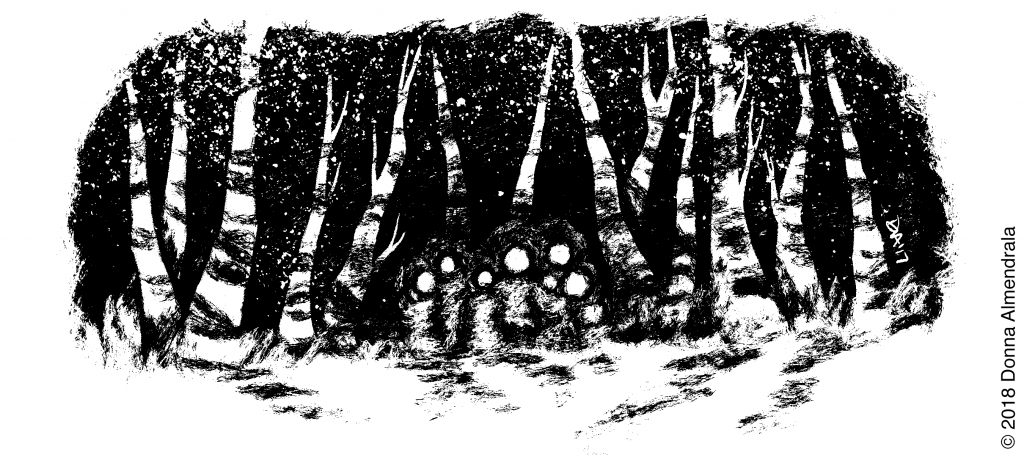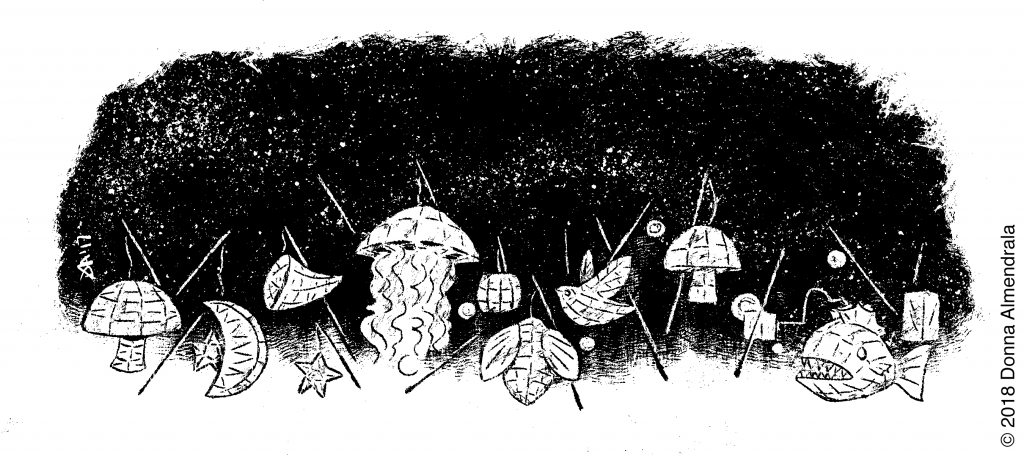
The other night there was a parade where people held aloft glowing paper luminaries. There was a swarm of bees, a lone unicorn, and other little and big creatures dancing in the air, hanging from strings at the ends of sticks.
Luminaries emerge on just one night of the year in April, when they feel that the dark days of winter have gone on long enough. They come and they shine to put hope into people’s hearts, to tell us, with their glow, ‘hold on just a little longer, because spring and summer are near.’ That’s their job, and it’s why people make them. But what people don’t know is that, without the luminaries, winter would never end. That’s because winter, like a child, sometimes needs to be told when it’s time to go to bed. And also like a child, sometimes it needs to be told more than once.
That night, the luminaries led their makers — though of course their makers thought they were the ones doing the leading — around the parade as they looked for winter. If you listened closely, their paper shells, rustling in the wind, sounded faintly like whispers. ‘It’s time for bed,’ they all said. Winter heard this, and he stomped his foot — he started snowing and he blew an icy wind. What had been the warmest night of the year now felt again like the dead of winter. The luminaries tossed in the wind and their light illuminated the snowflakes that flurried to the ground. ‘No,’ the wind howled.
‘You know the rules,’ the luminaries were saying. ‘If you don’t go to bed, we’ll have to make you — please don’t make this hard. If you go now, by yourself, we may let you come early next year.’
The wind and the snow raged, and the people pulled their scarfs and hats and coats tight and huddled together. As they gathered the luminaries rustled and jostled against one another and their light became one horizon that resembled a spring day. Then, the snow and the wind abated. Winter, at last, was slumbering in bed, with his alarm set for October. ![]()

